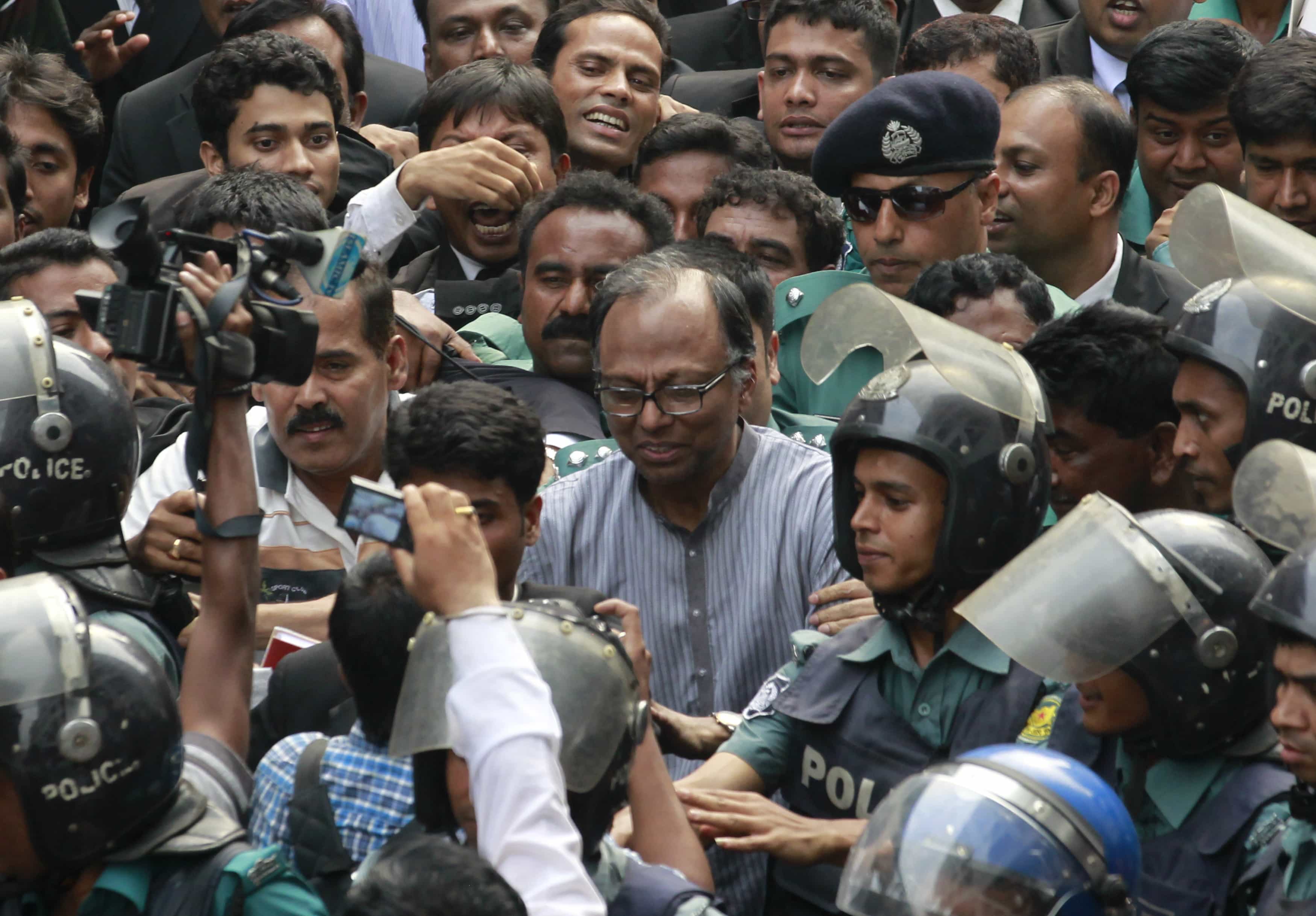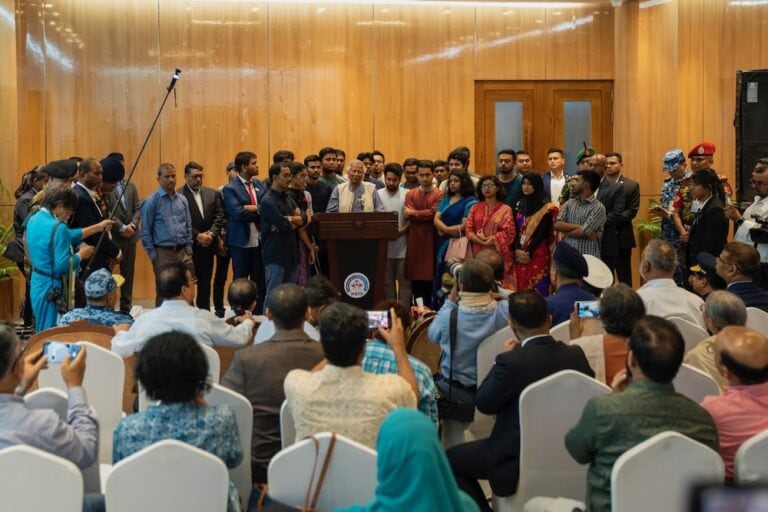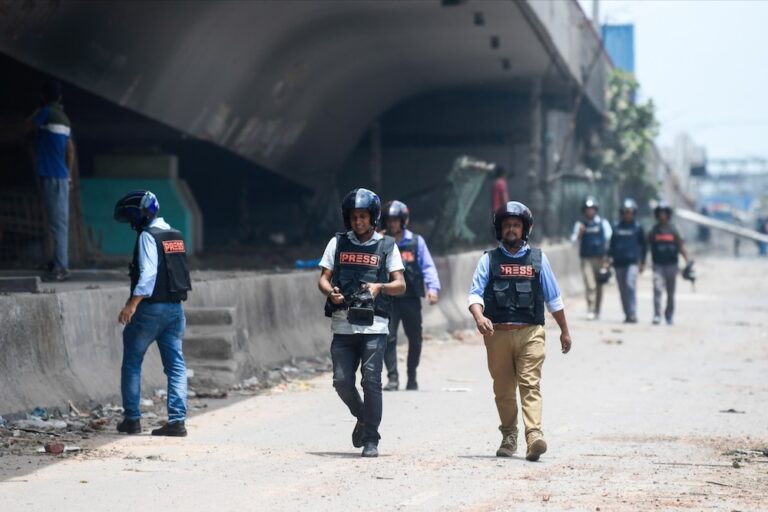Amid growing political conflict that threatens even more violence in Bangladesh, an editor of a pro-opposition newspaper has been arrested on accusations of inciting religious tension.
Amid growing political conflict that threatens even more violence in Bangladesh, an editor of a pro-opposition newspaper in Dhaka has been arrested on accusations of inciting religious tension, according to news reports. The editor faces earlier charges of sedition as well, the reports said.
“We are concerned by the arrest of Mahmudur Rahman,” said Bob Dietz, CPJ’s Asia program coordinator, on April 12, 2013. “In light of the highly politicized climate in Bangladesh, the press must be free to raise criticism and questions without fearing serious criminal charges.”
Rahman, 59, editor and majority owner of the Bengali-language daily Amar Desh, was arrested at his office on Thursday April 11 and placed in police custody for 13 days for further investigation, according to news reports. Masudur Rahman, spokesman for the Dhaka police, told Agence France-Presse that Rahman was accused of publishing false and derogatory information that incited religious tension.
In recent weeks, Amar Desh, one of the largest dailies in Bangladesh that is known for its news coverage, began to openly criticize the Shahbagh movement, which calls for the death penalty of Islamist leaders on trial for war crimes, news reports said. The movement has also become a rallying call against growing Islamic fundamentalism in a country that is 90 percent Muslim.
Several news reports cited one February 22 article published in Amar Desh as an example of the pro-opposition paper’s inflammatory coverage of the secular or self-described atheist bloggers, who have been instrumental in amplifying support for the Shahbagh movement, reports said. The article, headlined “Bloggers committing contempt of religion and court,” criticized the bloggers and called them “enemies of Islam” and their work “vulgar, objectionable propaganda.”
The Amar Desh stories come amid a time of heightened political and religious tension in the country. Leaders of the Shahbagh movement said Rahman had “whipped up religious passion against bloggers and online activists” and should be arrested, according to news reports. Islamists then vowed further violence if the editor, who they called a “soldier of Islam,” was taken into custody, the reports said.
Rahman, and Alhaj Asmat Ali, publisher of Amar Desh, also face charges of sedition, which were filed in December in connection with the paper’s coverage of leaked transcripts of Skype conversations between a lawyer and the lead judge of Bangladesh’s war crimes tribunal, news reports said. The tribunal, which is tasked with prosecuting individuals for alleged war crimes committed during the 1971 war of independence, has already convicted several senior Islamist leaders. Amar Desh reported that the judge had shared case details with the lawyer and asked for advice, which some observers said cast doubt on the impartiality of the tribunal. News accounts reported that soon after the conversations were leaked, the tribunal ordered the press to stop reporting on the case.
Rahman served as an energy adviser in the previous opposition Bangladesh Nationalist Party-led government, which is aligned with Islamist parties. He has been targeted by the ruling Awami League in recent years. He was arrested in June 2010 and spent 10 months in prison on charges of defamation in connection with his reports on alleged corruption by the son of the current prime minister, news reports said.
During the week of April 8, hundreds of thousands of Islamists took to the streets demanding death for bloggers whose work they saw as blasphemous. Four bloggers were arrested recently on charges of insulting Islam through their Internet writings.



